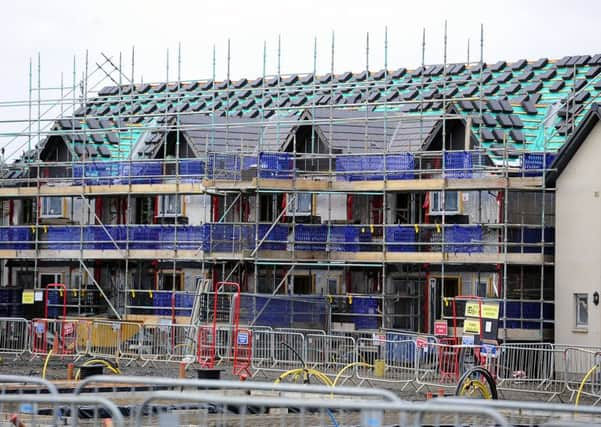Contraction for manufacturing and construction sectors
This article contains affiliate links. We may earn a small commission on items purchased through this article, but that does not affect our editorial judgement.


Data from the Office for National Statistics (ONS) showed manufacturing output fell 0.6 per cent in March, while construction dipped 0.7 per cent and industrial output as a whole slumped 0.5 per cent, its third straight monthly decline.
The figures, which fell short of expectations, point to a further slowdown in momentum for the UK economy following the country’s decision to quit the EU last year.
Advertisement
Hide AdAdvertisement
Hide Ad• READ MORE: UK economy slowdown worse than feared as sales fall
To compound matters, the UK’s total trade deficit in goods and services widened by £2.3 billion between February and March to £4.9bn, contributing nearly half of the quarterly deficit, which also grew by £5.7bn to £10.5bn.
Samuel Tombs, chief UK economist at Pantheon Macroeconomics, said: “March’s industrial production figures show that the pressure on consumers’ real incomes from rising inflation is beginning to hurt manufacturers. Industrial production has fallen for three consecutive months.
“With households’ real incomes set to come under further pressure from rising inflation, manufacturing output likely will grow only sluggishly ahead.”
However, new housing experienced growth in March, increasing month-on-month by 3.8 per cent, and Allan Callaghan, managing director of Cruden Building & Renewals, said housebuilding had been the “jewel in the crown” for construction output during the first quarter.
He added: “The Scottish construction sector has faced many challenges but those operating in the industry have the drive, desire and talent to face them head on. Now is the time for the housebuilding sector to make hay while the sun shines, driving future construction growth and ensuring we see positive statistics in the coming months.”
Advertisement
Hide AdAdvertisement
Hide AdMichael Thirkettle, chief executive of construction and property consultancy McBains Cooper, said: “Political parties of all stripes are now set to outline ambitious manifesto targets to increase housebuilding but these will be hollow promises unless they are backed by concerted action to address skills shortages and increase access to finance, meaning no end in sight for the housing crisis.
“Whoever wins on 8 June, Brexit will occupy much of the government’s focus over the next two years, and consequently there will be continuing caution from the private and corporate sectors in construction. Yet the industry needs the opposite – some bold moves and big investments – if it is to produce sustained growth any time soon.”
Today’s trade figures in particular made for sober reading, with the collapse in the value of the Brexit hit pound failing to provide a significant boost for exporters.
“March’s simply dreadful trade figures demonstrate that Britain is failing to capitalise on sterling’s depreciation,” Tombs added.
The industrial production figures were dragged down by a fall in housing repair and maintenance jobs and infrastructure. The largest downward impact on production came from electricity generation, due to warmer than average temperatures.
On a quarterly basis, industrial output nudged up by 0.1 per cent and manufacturing growth slowed to 0.3 per cent. However, the ONS added that the slew of poor figures implied no change to its preliminary estimate that the economy grew 0.3 per cent in the first quarter.
Oliver Kolodseike, senior economist at the Centre for Economics & Business Research, said: “With the consumer boom that has propelled the UK economy forward in recent years likely to end this year as rising inflation is predicted to outstrip earnings growth, manufacturing will be a key determinant of the UK economic performance.
“With the sector expected to be a growth driver this year, today’s release represents a concern for the overall economic outlook.”